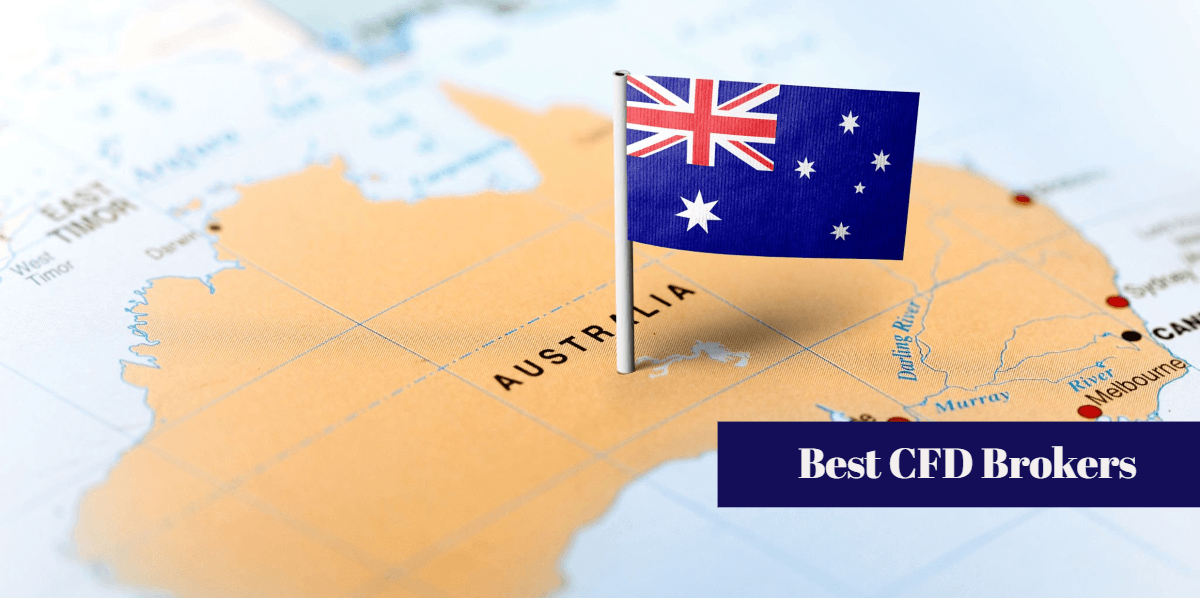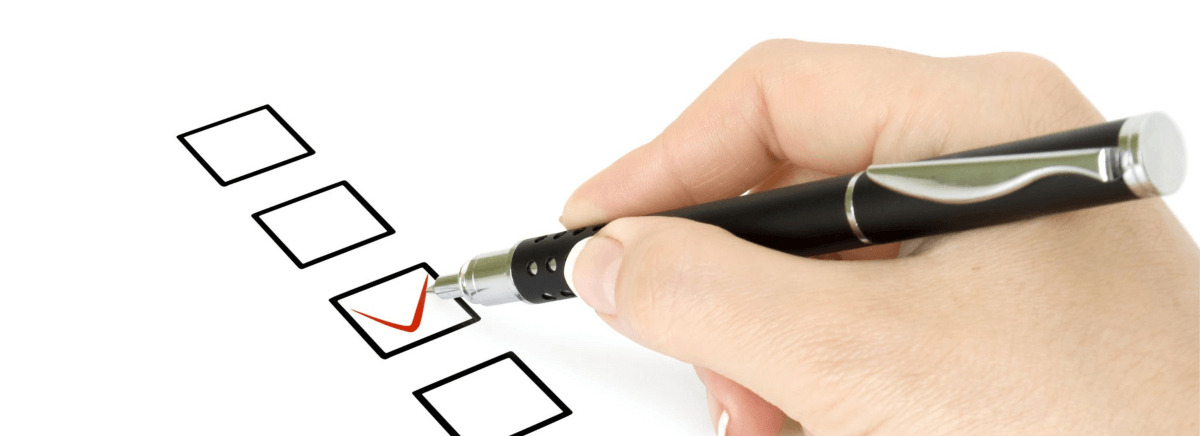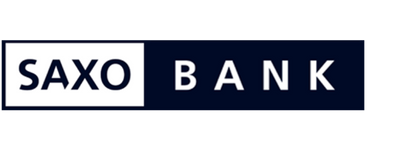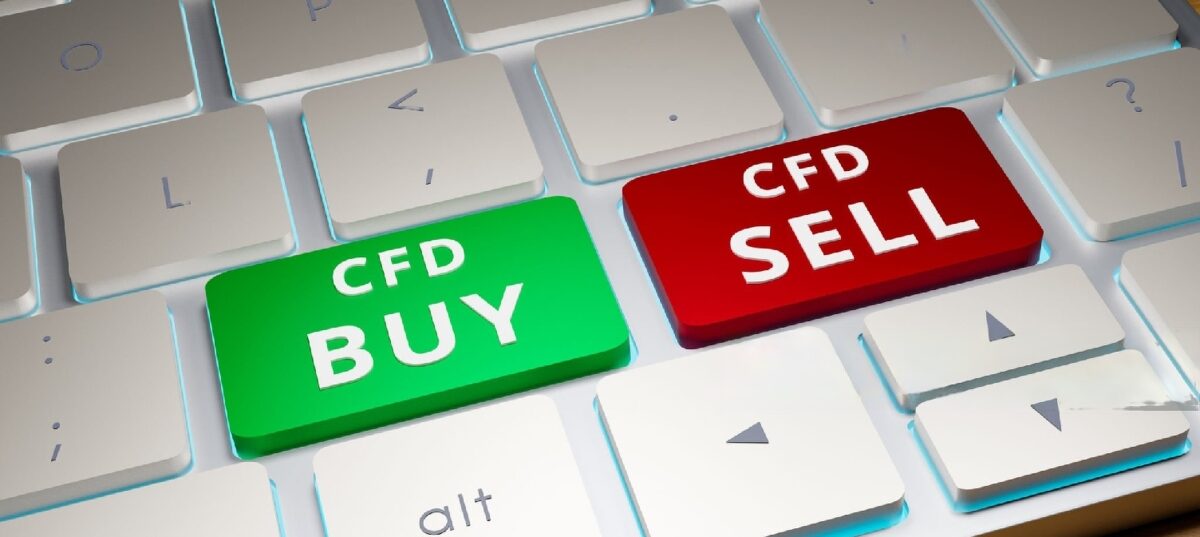
CFD trading in Australia has been on a meteoric rise in recent years. It’s like this whole new world of financial opportunities has opened up right before our eyes.
You see, Contracts for Difference, or CFDs, have become the go-to choice for many traders. Why? Because they offer something traditional markets can’t – the chance to profit from both rising and falling markets. It’s no wonder Australians are jumping onto the CFD bandwagon. But in this exciting world of opportunities, there’s a crucial choice to make: finding the best CFD brokers in Australia that suit your trading needs in 2024.
Choosing the right broker can be the difference between a smooth, profitable voyage and a rocky one. So, buckle up because we’re about to explore why this choice is so pivotal.
What Are CFD Brokers?
Alright, so what exactly are CFD brokers? Think of them as your trading partners. They’re the bridge that connects you, the trader, to the vast world of CFDs. CFD brokers provide you with access to these unique financial instruments. They offer you a platform where you can buy and sell CFDs based on various assets – stocks, commodities, cryptocurrencies, you name it.
Now, you might wonder, “Why do I even need a CFD broker? Can’t I do this on my own?” Well, you could try, but it’s a bit like climbing Mount Everest without a guide. CFD brokers offer you a platform, tools, and insights that make your trading journey smoother and potentially more successful. Plus, they offer leverage, which is like a turbo boost for your trades.
However, remember, leverage can magnify both gains and losses, so it’s a double-edged sword. That’s where a good CFD broker becomes even more crucial. They should have your back with risk management tools and educational resources to help you make informed decisions.
Is CFD Trading in Australia Legal?
Certainly! CFD trading in Australia is indeed legal and regulated by the Australian Securities and Investments Commission (ASIC). ASIC is the government agency responsible for overseeing financial markets and ensuring that financial services providers, including CFD brokers, comply with Australian laws and regulations.
As a trader in Australia, this regulatory oversight is a positive aspect because it helps protect your interests and ensures that CFD brokers operate fairly and transparently. It means that CFD brokers offering their services to Australian residents must adhere to strict standards regarding client fund protection, fair trading practices, and disclosure of risks.
However, while CFD trading is legal and regulated, it’s essential to approach it with caution. CFDs are complex financial instruments that carry a high level of risk, and you can potentially lose more than your initial investment. So, it’s crucial to educate yourself about the risks involved and consider your risk tolerance before engaging in CFD trading.
Additionally, always choose a reputable and Australian-regulated CFD broker to ensure that your trading experience is safe and compliant with Australian laws.
Let’s now talk about how to go about it.
How to Choose ASIC-Regulated CFD Brokers in Australia

Now comes the fun part, picking the platform that suits your trading style and needs. Here are a few things to consider when choosing ASIC regulated CFD brokers:
Research and Due Diligence
- Regulatory Compliance and Licensing: It’s like checking the credentials of a doctor before a major surgery. Ensure your CFD broker is licensed and regulated by the ASIC. This means they’re playing by the rules, and your funds are in safer hands.
- Reputation and Reliability: Think of your broker as a trustworthy partner. Check out reviews, ask fellow traders for recommendations, and gauge their reliability. You want someone who won’t leave you high and dry.
Trading Features and Tools
- Asset Selection and Market Coverage: What instruments can you trade? Make sure your chosen broker offers a range of assets that align with your trading goals. Diversification, after all, is the spice of trading life.
- Trading Platforms and User Experience: Your trading platform is your cockpit. It should be intuitive, responsive, and equipped with the tools you need. Test-drive a few to find the one that feels like your trading home.
Costs and Fees
- Spreads, Commissions, and Financing Charges: Keep an eye on costs. Lower spreads and commissions mean you retain more of your hard-earned profits. Also, check financing charges for holding positions overnight – it can add up.
Leverage and Risk Management
- Leverage Options: Leverage can amplify gains but also losses. Make sure your broker offers suitable leverage options. Don’t get carried away; it’s a double-edged sword.
- Risk Mitigation Features: Risk management tools like stop-loss orders and negative balance protection are your safety nets. Ensure your broker provides these to limit potential disasters.
Customer Support and Resources
- Support Availability: Trading doesn’t sleep, and neither should your broker’s support. Round-the-clock availability is a massive plus. You never know when you’ll need a helping hand.
- Educational Materials: Whether you’re a newbie or a seasoned pro, learning never stops. A broker with a wealth of educational materials, webinars, and tutorials can help you level up your game.
Remember, there’s no one-size-fits-all in the world of CFD trading. Your best broker might not be the same as your trading buddy’s, and that’s perfectly fine. Take your time, explore, and choose the one that aligns with your trading style and goals.
Best CFD Brokers in Australia
Let’s talk about the top CFD trading platforms available in the Land of Oz. We’ve done the homework for you, so you can make an informed choice. Each platform has its own set of features, pros, and cons. Here’s the lowdown.
1# IG Group

When it comes to CFD trading in Australia, IG Group is a heavyweight. One of the standout features is that they’re ASIC regulated, which means they operate under strict Australian financial guidelines. That’s always reassuring for traders.
What’s more, IG Group Australia offers an impressive range of CFDs, including forex, stocks, indices, and commodities. So, you’re not limited to just one type of trading; you can diversify your portfolio.
Their trading platform is user-friendly, which is excellent, especially if you’re new to CFDs. Plus, they provide a suite of trading tools to help you make informed decisions.
Education matters, right? Well, IG Group shines here too, with strong educational resources to help you understand the complex world of CFDs.
And of course, competitive spreads and fees are always a bonus. It’s your money, after all, so you want to make the most of it.
| Pros | Cons |
|---|---|
| ✅ Regulated by ASIC | ⏳ Inactivity fee |
| 📊 Wide range of CFD products | 📉 Spreads can be higher than some |
| 🖥️ User-friendly trading platform | 📉 Limited cryptocurrency options |
| 💰 Competitive pricing | |
| 🔍 Strong research and analysis tools |
2# CMC Markets

Another strong contender in the Australian CFD brokers landscape is CMC Markets. Just like IG Group, they’re ASIC regulated, so you can trade with confidence.
CMC Markets offers a diverse range of CFD instruments, so you can explore various markets. Their trading platform is intuitive and comes with advanced charting tools. This is great for traders who like to get into the nitty-gritty of technical analysis.
Access to research and analysis tools is a big deal in the trading world. CMC Markets doesn’t disappoint here either, providing you with valuable insights to make well-informed decisions.
Competitive pricing and tight spreads? Check! Your costs are an important factor in your trading strategy, and CMC Markets knows that.
| Pros | Cons |
|---|---|
| ✅ ASIC regulation | ⏳ Inactivity fee |
| 📊 Diverse CFD product offerings | 📉 Spreads can be relatively high |
| 🖥️ Intuitive Next Generation platform | 📉 Limited cryptocurrency options |
| 🔍 Advanced research and analysis | |
| 📞 Strong customer support |
3# Pepperstone

Pepperstone is another ASIC-regulated CFD broker, and they’ve got a few unique features up their sleeve.
They’re all about forex and CFD trading, so if that’s your focus, they’re worth a look. What’s really cool is that they offer the award-winning MetaTrader 4 and MetaTrader 5 platforms. These are like the Ferrari of trading platforms – fast, reliable, and packed with features.
If you’re into low spreads and direct market access, Pepperstone’s ECN trading accounts might be right up your alley.
And let’s not forget about customer support. It’s nice to know that if you have questions or run into issues, there’s a team ready to help you out.
| Pros | Cons |
|---|---|
| ✅ ASIC regulation | 📉 Limited educational resources |
| 💹 Competitive spreads | 📉 Limited customization options |
| 🖥️ Access to cTrader and MetaTrader | |
| 📞 High-quality customer support | |
| 🚀 Strong execution speeds |
4# Axi

Axi is an Australian CFD broker that first opened its doors in 2007. Headquartered in Sydney, Axi holds regulatory licenses from ASIC and the top-tier UK’s Financial Conduct Authority (FCA).
As a home-grown Australian brokerage, Axi puts security first by segregating Australian client funds. But it also offers access to thousands of markets – anything an experienced Aussie trader could hope to find, plus all the majors a beginner would need to get started. And with multiple platforms to choose from, Axi caters to all technical skill levels.
Where they really shine is pricing and support – Axi is transparent on fees and spreads stay competitive even during volatile swings. More importantly, they staff a local support team to give Australians that personalized touch.
For these reasons and more, Axi has earned a place among the best CFD brokers in Australia. So if you want to trade CFDs with an Australian specialist by your side, Axi checks all the boxes.
Read also! Full Axi Review for 2024
| Pros | Cons |
|---|---|
| ✅ Australian-regulated | 📉 Spreads can widen during volatile market swings |
| 🔍 Transparent and competitive pricing and spreads | ⏳ Inactive account fees |
| 🛠️ Good range of platforms for different trader skill levels | 💱 High Fx fees |
| 🌍 Access to thousands of global CFD and forex markets | |
| 📞 Local AU-based customer support team | |
| 📰 Regular market news & analysis provided |
5# Saxo Capital Markets

When it comes to CFD brokers in Australia, Saxo Capital Markets stands tall. One key reason is their regulation by ASIC, which translates to trustworthiness and compliance with Australian financial standards.
But that’s just the beginning. Saxo Capital Markets offers a diverse range of CFDs and investment products. Whether you’re into forex, stocks, or commodities, they’ve got you covered. What’s more, their SaxoTraderGO platform is like your personal command center. You can customize it to match your unique trading style and preferences.
And here’s the kicker – Saxo Capital Markets gives you access to global markets. That means you can trade beyond Australian borders, diversifying your portfolio like a pro. Plus, they provide top-notch research and analysis tools to help you make informed decisions. It’s like having a financial advisor right at your fingertips.
| Pros | Cons |
|---|---|
| ✅ ASIC regulation for trust and compliance. | 💰 High minimum deposit requirements (AUD 3,000). |
| 📊 Wide range of CFDs and investment products. | 📉 Not the most beginner-friendly interface. |
| 🖥️ Customizable SaxoTraderGO platform. | 📞 Customer support may have room for improvement. |
| 🌍 Access to global markets for diversification. | |
| 🔍 Robust research and analysis tools. |
6# FP Markets

Now, let’s talk about FP Markets. Another ASIC-regulated broker option that’s making waves in the CFD world.
What’s cool about FP Markets is they offer CFDs on all sorts of assets – forex, shares, commodities – you name it. So, you’re not limited in your trading choices.
Their spreads are tight, and they’re known for competitive pricing. Your money goes a long way here.
If you’re into advanced trading platforms, you’ll like this – they offer access to the IRESS platform. It’s a powerful tool for serious traders.
And just like Saxo, FP Markets has some impressive research and analysis tools. Knowledge is power, right?
| Pros | Cons |
|---|---|
| ✅ ASIC regulation for security. | 📉 Limited educational resources for beginners. |
| 📊 Diverse CFD offerings across various assets. | 🚫 No proprietary trading platform. |
| 💹 Competitive pricing with tight spreads. | 📉 Limited integration with third-party platforms. |
| 🖥️ Access to the IRESS trading platform. | 📉 Limited cryptocurrency CFD offerings. |
| 🔍 Strong research and analysis tools. |
7# City Index
Lastly, we have City Index. Another ASIC-regulated platform in the Australian CFD scene. Their regulatory status is your assurance of a secure trading environment.
City Index boasts a diverse range of CFD products. Whether you’re into forex, indices, or commodities, you’ll find something that suits your trading style. Plus, their Advantage Web platform is as user-friendly as it gets. You’ll feel right at home, even if you’re new to CFD trading.
But what truly sets City Index apart is their access to technical and fundamental analysis. These tools give you the edge when making trading decisions. And let’s not forget their competitive pricing and low spreads. Who doesn’t love saving some bucks on fees?
| Pros | Cons |
|---|---|
| ✅ ASIC regulation for reliability. | 📉 Limited range of cryptocurrency CFDs. |
| 📊 Diverse CFD product offerings. | 📞 Customer service quality can vary. |
| 🖥️ User-friendly Advantage Web platform. | 📉 Limited educational resources. |
| 🔍 Access to technical and fundamental analysis. | |
| 💹 Competitive pricing and low spreads. |
How CFD Brokers Work
So, you’re curious about how these Australian regulated CFD brokers work, right? Well, let me break it down for you. CFD is a bit like a financial agreement between you and the broker. Instead of owning the actual asset, say a stock or a commodity, you’re just speculating on its price movement.
Here’s the deal: When you open a CFD trade, you’re essentially betting on whether the price of the asset will go up or down. If you’re right, you make a profit; if you’re wrong, you make a loss. The cool thing is that you can profit from both rising and falling markets, which gives you a lot of flexibility.
Opening an Account with the Best CFD Broker in Australia
Getting started with an Australian regulated CFD broker is very simple. It’s like signing up for any other online service. You’ll need to provide some personal information, verify your identity (to comply with regulations), and maybe answer a few financial suitability questions. It’s all to make sure CFD trading is right for you.
Once your account is set up, you can deposit funds. Most brokers offer various funding options, from credit cards to bank transfers. After that, you’re ready to start trading!
Access to a Wide Range of Financial Instruments
One of the things I love about CFD brokers in Australian is the incredible variety of financial instruments they offer. You can trade on stock indices like the ASX 200, precious metals like gold, commodities like oil, and even cryptocurrencies like Bitcoin – all from one trading platform.
This diversity can be a game-changer for your investment strategy. You can spread your risk by trading different assets, or you can focus on what you’re most knowledgeable about.
Leverage and Margin in CFD Trading
Now, here’s where things get interesting, and a bit tricky if you’re not careful. CFD trading often involves something called leverage. It’s like a loan from your broker that allows you to control a more substantial position with a smaller amount of your own money. Sounds great, right?
Well, it can be, but it also amplifies your losses if the trade goes against you. So, while leverage can boost your potential profits, it can also increase your risks. Always use it wisely and make sure you understand how it works.
The Role of Australian CFD Brokers in Trade Execution
When you place a CFD trade, your broker plays a crucial role in executing it. They match your order with someone else in the market, and this can happen almost instantly because CFD markets are generally quite liquid.
Brokers also provide you with trading platforms where you can analyze the markets, place orders, and manage your positions. Some even offer advanced tools like charts and indicators to help you make informed decisions.
How to Trade CFDs

So, you’re eager to begin trading CFDs? Fantastic choice! Let’s walk through the initial steps to kickstart your CFD trading journey.
- Educate Yourself: Knowledge is power, and it’s particularly true in CFD trading. Before anything else, take the time to understand what CFDs are, how they work, and their associated risks. You’ll find numerous online resources, courses, and even demo accounts to get you started without risking your hard-earned cash.
- Choose a Reliable Broker: Picking the right CFD broker is crucial. Choose from any of the above-mentioned Australian regulated CFD brokers to ensure your safety. Consider factors like fees, available markets, and the trading platform’s user-friendliness.
- Create Your Trading Plan: Successful CFD trading begins with a well-thought-out plan. Define your financial goals, risk tolerance, and preferred trading strategy. Having a plan in place can help you stay focused and disciplined.
- Open an Account: Once you’ve chosen your broker, it’s time to open a trading account. This usually involves providing some personal information and verifying your identity.
- Deposit Funds: Transfer the amount you’re comfortable trading with into your new CFD trading account. Be mindful not to invest more than you can afford to lose.
Placing Your First CFD Trade
Now that you’ve got your account set up, let’s talk about making your first CFD trade. It’s exciting, isn’t it?
- Choose an Asset: Start by selecting the asset you want to trade. CFDs are available for a wide range of assets, including stocks, indices, currencies, and commodities. Pick one that aligns with your trading strategy.
- Analyze the Market: Dive into market analysis. Whether you’re into technical or fundamental analysis, gather as much information as possible about your chosen asset. This will help you make an informed decision.
- Place Your Order: Using your broker’s trading platform, place your trade. You’ll need to specify whether you’re going long (buying) or going short (selling) on the asset. Don’t forget to set your stop-loss and take-profit orders to manage risk.
- Monitor and Learn: Once your trade is live, keep a close eye on the market. This isn’t a ‘set it and forget it’ game. Pay attention to how your trade is performing and be ready to adjust your strategy if needed.
Risk Management Strategies for Successful Trading
Successful CFD trading is not just about making profits; it’s also about managing risks effectively. Here are some CFD trading tips to keep you on the right track:
- Set Stop-Loss Orders: Always set stop-loss orders when you open a trade. This specifies the price at which your trade will automatically close if it’s moving against you, limiting potential losses.
- Diversify Your Portfolio: Don’t put all your eggs in one basket. Diversify your CFD portfolio by trading different assets. This can help spread risk.
- Use Leverage Wisely: While leverage can amplify profits, it can also magnify losses. Use it cautiously and within your risk tolerance.
- Stay Informed: Markets are influenced by news and events. Stay informed about economic announcements, earnings reports, and global events that could impact your trades.
- Practice with a Demo Account: Many brokers offer demo accounts where you can practice trading with virtual money. It’s a great way to hone your skills without risking real capital.
Take Away
CFD trading in Australia offers exciting opportunities, but choosing the right broker is vital. It’s a regulated and legal practice, but it involves risks. With the right knowledge and strategy, you can navigate the world of CFDs successfully. Happy trading!
